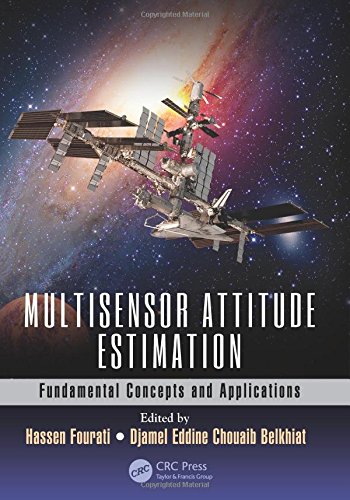

Most ebook files are in PDF format, so you can easily read them using various software such as Foxit Reader or directly on the Google Chrome browser.
Some ebook files are released by publishers in other formats such as .awz, .mobi, .epub, .fb2, etc. You may need to install specific software to read these formats on mobile/PC, such as Calibre.
Please read the tutorial at this link: https://ebookbell.com/faq
We offer FREE conversion to the popular formats you request; however, this may take some time. Therefore, right after payment, please email us, and we will try to provide the service as quickly as possible.
For some exceptional file formats or broken links (if any), please refrain from opening any disputes. Instead, email us first, and we will try to assist within a maximum of 6 hours.
EbookBell Team

4.1
60 reviewsThere has been an increasing interest in multi-disciplinary research on multisensor attitude estimation technology driven by its versatility and diverse areas of application, such as sensor networks, robotics, navigation, video, biomedicine, etc. Attitude estimation consists of the determination of rigid bodies’ orientation in 3D space. This research area is a multilevel, multifaceted process handling the automatic association, correlation, estimation, and combination of data and information from several sources. Data fusion for attitude estimation is motivated by several issues and problems, such as data imperfection, data multi-modality, data dimensionality, processing framework, etc. While many of these problems have been identified and heavily investigated, no single data fusion algorithm is capable of addressing all the aforementioned challenges. The variety of methods in the literature focus on a subset of these issues to solve, which would be determined based on the application in hand. Historically, the problem of attitude estimation has been introduced by Grace Wahba in 1965 within the estimate of satellite attitude and aerospace applications.
This book intends to provide the reader with both a generic and comprehensive view of contemporary data fusion methodologies for attitude estimation, as well as the most recent researches and novel advances on multisensor attitude estimation task. It explores the design of algorithms and architectures, benefits, and challenging aspects, as well as a broad array of disciplines, including: navigation, robotics, biomedicine, motion analysis, etc. A number of issues that make data fusion for attitude estimation a challenging task, and which will be discussed through the different chapters of the book, are related to: 1) The nature of sensors and information sources (accelerometer, gyroscope, magnetometer, GPS, inclinometer, etc.); 2) The computational ability at the sensors; 3) The theoretical developments and convergence proofs; 4) The system architecture, computational resources, fusion level.